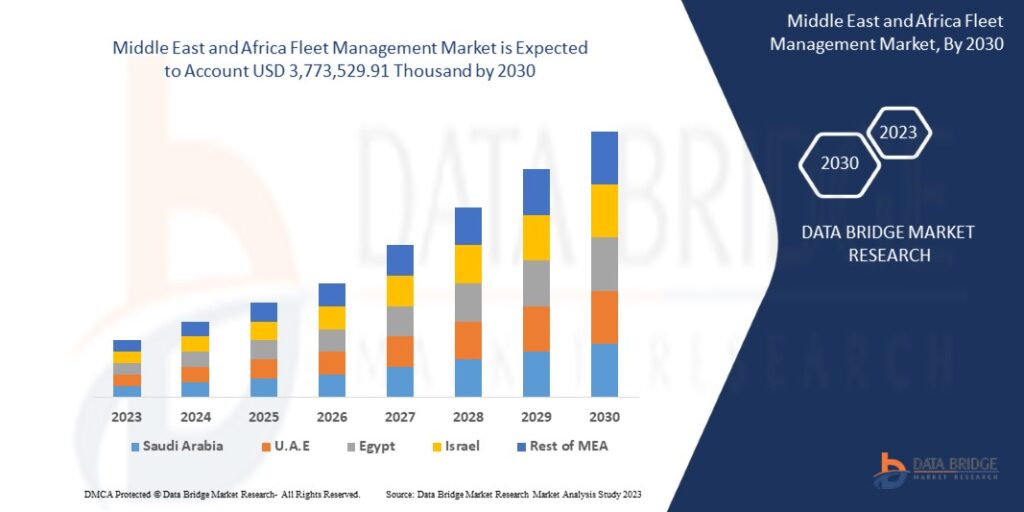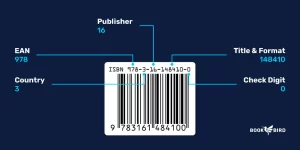Introduction
The fleet management market in the Middle East and Africa (MEA) is undergoing rapid evolution, fueled by technological advancements, increasing demand for logistics services, rising fuel costs, and the push toward digitization and operational efficiency. With governments and private companies alike seeking better ways to monitor, maintain, and optimize vehicle fleets, the demand for advanced fleet management solutions across the region is growing.
While still emerging compared to North America and Europe, the MEA fleet management market presents significant potential, with projections estimating steady growth through 2030. The region’s unique challenges—such as vast geographic coverage, underdeveloped infrastructure in parts, and extreme climate conditions—are driving the need for more reliable and scalable fleet solutions.
Market Overview
Fleet management involves the monitoring and administration of a company’s vehicle fleet using software and hardware technologies. These systems typically include GPS tracking, route optimization, driver behavior monitoring, fuel management, vehicle diagnostics, and maintenance scheduling.
In MEA, the market is expanding across industries such as transportation and logistics, oil and gas, construction, mining, retail, and public services. Key countries leading adoption include the United Arab Emirates (UAE), Saudi Arabia, South Africa, Egypt, and Kenya, where governments and enterprises are actively investing in digital infrastructure and automation.
Key Growth Drivers
-
Expansion of Logistics and E-commerce
The rapid growth of e-commerce across the region, especially in countries like the UAE, Saudi Arabia, and South Africa, is driving demand for delivery services and logistics optimization. Fleet management tools help companies meet tight delivery windows, manage driver schedules, and reduce costs.
-
Government Modernization Initiatives
Several national programs are promoting digitization and smart mobility. For example, Saudi Arabia’s Vision 2030 and the UAE’s Smart Mobility Strategy encourage businesses to adopt digital solutions, including telematics and fleet management technologies, to improve transportation efficiency and environmental sustainability.
-
Need for Cost Efficiency
High operational costs, especially fuel and vehicle maintenance, are prompting companies to use fleet management systems to identify inefficiencies. Route optimization and fuel usage tracking can significantly cut expenses, particularly in regions where long-haul travel across deserts and rural areas is common.
-
Regulatory Compliance and Safety
Governments across MEA are implementing stricter regulations on emissions, road safety, and driver working hours. Fleet management systems help ensure compliance with local and international standards by tracking driver behavior, vehicle health, and scheduling preventive maintenance.
-
Improved Connectivity
The rollout of 4G/5G networks and improved GPS accuracy across much of the region is making it easier to implement advanced fleet telematics solutions, even in remote or previously underserved areas.
Challenges Facing the Market
While opportunities abound, the MEA fleet management market faces several obstacles:
-
High Initial Investment: The cost of implementing advanced fleet systems, particularly for small and medium-sized enterprises (SMEs), can be prohibitive without financial support or clear ROI projections.
-
Infrastructure Disparities: While countries like the UAE and South Africa have advanced infrastructure, others still lack the connectivity or road quality needed for effective fleet tracking.
-
Limited Awareness and Digital Skills: In many regions, a lack of awareness or digital literacy hampers adoption of more sophisticated systems.
-
Data Privacy and Security Concerns: The rise of cloud-based fleet solutions brings new risks related to cybersecurity and data governance.
Market Segmentation
-
By Component
-
Hardware: GPS tracking devices, vehicle diagnostic systems, dash cams.
-
Software: Fleet tracking, driver analytics, fuel monitoring, route optimization.
-
Services: Consulting, training, system integration, and support.
-
-
By Vehicle Type
-
Light Commercial Vehicles (LCVs): Dominant in last-mile delivery and services.
-
Heavy Commercial Vehicles (HCVs): Widely used in construction, mining, and long-haul transport.
-
-
By End-Use Industry
-
Transportation and Logistics
-
Oil and Gas
-
Construction
-
Public Sector and Government
-
Retail and Distribution
-
Key Regional Markets
-
United Arab Emirates (UAE): A regional leader in smart transportation, with heavy investment in digital logistics and connected vehicles.
-
Saudi Arabia: Rapidly adopting fleet solutions as part of Vision 2030 to modernize logistics, reduce traffic fatalities, and increase transport efficiency.
-
South Africa: A mature sub-market with advanced logistics networks and wide use of fleet management in mining, delivery, and public transport.
-
Egypt and Kenya: Emerging markets with growing interest in vehicle tracking and route optimization, especially in urban transport and delivery services.
Top Players and Competitive Landscape
MEA’s fleet management ecosystem includes global providers, regional players, and local specialists. Some key vendors include:
-
Geotab: A global telematics company with growing presence in MEA, offering scalable fleet solutions.
-
MiX Telematics: South Africa-based, with operations throughout Africa and the Middle East, specializing in fleet tracking and driver safety.
-
Gurtam: A major software developer offering white-label solutions to local fleet management service providers.
-
Oracle and Verizon Connect: Multinational companies expanding cloud-based fleet offerings into the region.
In addition to these, local startups and system integrators play a vital role in customizing solutions for regional needs.
Emerging Trends
-
Electric Fleet Integration
Although still limited, interest in electric vehicle (EV) fleet management is rising in the UAE and parts of North Africa, especially with supportive government policies and increased environmental awareness.
-
AI and Predictive Analytics
AI-powered fleet management is enabling predictive maintenance, real-time incident detection, and smarter routing, especially for logistics-intensive operations.
-
Video Telematics
Dash cameras integrated with telematics systems are gaining popularity for insurance claims, driver training, and safety assurance.
-
Mobile-First Solutions
Given the widespread use of smartphones, mobile-based fleet platforms are becoming essential for real-time communication between drivers and dispatch centers.
-
Cloud-Based Solutions
The shift to cloud platforms enables remote fleet management, scalability, and better data integration across business operations.
Conclusion
The Middle East and Africa fleet management market is on a strong upward trajectory. As industries across the region invest in smarter, more sustainable logistics and transportation infrastructure, the adoption of advanced fleet management solutions is set to accelerate. While cost and infrastructure limitations remain challenges, they are being progressively offset by supportive government policies, technological advancements, and a growing ecosystem of service providers.
Get more Details
https://www.databridgemarketresearch.com/reports/middle-east-and-africa-fleet-management-market





